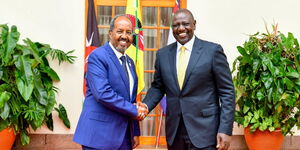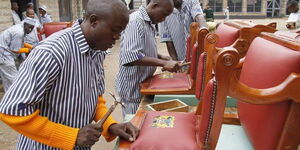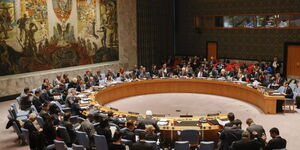Months after the government procured Cuban doctors, another team of Cuban experts is expected in the country to help in killing mosquitoes.
The experts are expected to kill the malaria-transmitting insects at their breeding sites using naturally occurring bacteria in a technology called larviciding.
President Uhuru Kenyatta reportedly turned to Cuba for help in managing the mosquitoes following frustrations in previous attempts to eliminate the killer insect.
[caption caption="President Uhuru Kenyatta during his visit to Cuba"] [/caption]
[/caption]
Despite decades of a dedicated war to curb malaria, the disease has been steadily on the rise, a fact attributed to the mosquitoes' great adaptations measures to beat the control technologies.
For instance, the mosquitoes are said to have changed their meal times and their target victims to beat the control campaigns in the process claiming an estimated 20,000 deaths annually.
An example is that when the government's efforts in Coast focused on covering babies under mosquito nets at night, the malaria carrier turned to older and less protected school-age children.
"Suddenly more school-age children than infants were reporting to the hospital with malaria," a health worker at the Coast General Hospital is quoted by The Standard noting of the drastic adaptation mechanism.
The mosquitoes are also reportedly feeding on beef for survival when humans use mosquito nets and also attacking night workers including twilight girls, boda-boda riders, revellers and watchmen.
A resident of Western Kenya notes that the mosquitoes have become stubbornly resistant to the insecticide-treated nets: "We used to collect dead insects in the morning but now we see them walking all over the nets".
[caption caption="A mother and her baby sleeping under mosquito net"] [/caption]
[/caption]
In the new plan, 10 vector control experts in the Cuban-led larviciding exercise in Kenya will be deployed in eight counties around Lake Victoria that have the highest prevalence of malaria.
According to the Head of the National Malaria Control Programme Dr Ejersa Waqo: "The first phase of the programme will last two years and Ksh500 million has been reserved for the project."












